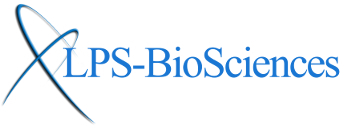BLOG

Une étude récente publiée par l’université du Michigan, avec pour premier auteur Matthieu Domenech de Cellès, de l’Institut Pasteur, montre que la résurgence de la coqueluche n’est pas causée par des évolutions récentes dans l’épidémiologie ou la biologie de la bactérie, mais par plusieurs facteurs inscrits dans la durée, comme le renouvellement naturel de la population, une couverture vaccinale incomplète et un lent déclin de la protection conférée par des vaccin, certes imparfaits, mais très efficaces.
Plus d'info sur https://www.pasteur.fr/fr/journal-recherche/actualites/resurgence-coqueluche-expliquee-tendances-long-terme-plutot-que-vaccins-defaillants

In recent months, Codif has launched several products that address the negative effects of a “hectic lifestyle”, such as slimming B-Shape and the skin-soothing Areaumat Perpetua.
Added to this list is Actibiome, which delivers a rebalancing action on facial skin microbiota, and which is particularly targeted at those whose stressful lifestyles have resulted in skin that is prone to breakouts and redness. Periods of stress, Codif showed, result in a larger population of total bacteria with significantly larger populations of Propionibacterium and Staphylococcus, and a smaller quantity of ‘unclassified’ bacteria, suggesting a reduction in diversity. Just one week’s use of Actibiome, however, not only reduces total bacteria but helps recover normal facial skin microbiota diversity. The ingredient is an exact ratio of 25g (per 100g) sugar-rich brown algae extract; 30g of amino acid and peptide-containing green microalgae extract; 25g of marine exopolysaccharide solution; and 20g Earth Marine Water, which is sourced from a ground water reservoir on the French island of Noirmoutier, and which contains trace elements of zinc, lithium and manganese in higher quantities than normal sea water. According to Codif, this ratio of four constituents provided optimal results in vitro.
Explaining why Codif was not using the term ‘prebiotic’ in its marketing, Pierre-Yves Morvan, Research and Development Director, said: “A prebiotic most of the time is a polysaccharide. The definition of a prebiotic is sugar that can be both recognised and used by the bacteria of the gut. This [Actibiome] is more. We use water and water is important for skin. Yes, we have sugar, but we also have nitrogen, carbons and trace elements, so it is much more. We prefer to say it is a diet for rebalancing skin microbiota.”
"At the level of the consumers and the suppliers, there is an awareness that nature can offer us some exceptional products" – Neil Astles, Global Marketing and New Business Development Manager, Ashland
See complete article
Details on endotoxins quantification and removal...

ABSTRACT:
Porphyromonas gingivalis infected mice with an established P. gingivalis-specific inflammatory immune response were protected from developing alveolar bone resorption by therapeutic vaccination with a chimera (KAS2-A1) immunogen targeting the major virulence factors of the bacterium, the gingipain proteinases. Protection was characterised by an antigen-specific IgG1 isotype antibody and Th2 cell response. Adoptive transfer of KAS2-A1-specific IgG1 or IgG2 expressing B cells confirmed that IgG1-mediated protection. Furthermore, parenteral or intraoral administration of KAS2-A1-specific polyclonal antibodies protected against the development of P. gingivalis-induced bone resorption. The KAS2-A1-specific antibodies neutralised the gingipains by inhibiting: proteolytic activity, binding to host cells/proteins and co-aggregation with other periodontal bacteria. Combining key gingipain sequences into a chimera vaccine produced an effective therapeutic intervention that protected against P. gingivalis-induced periodontitis.
Request Porphyromonas gingivalis LPS
Request serotype identification and characterization
Review Access

PHOTO COURTOISIE, MEDICAGO
Une feuille cousine du tabac serait en voie de transformer la vaccination antigrippale.
Environ 10 000 personnes de partout dans le monde testent un vaccin québécois contre la grippe qui pourrait être plus efficace que celui offert actuellement.
À Québec, l’usine de Medicago peut produire de 40 à 50 millions de doses de vaccin quadrivalent contre la grippe, en plus d’autres vaccins et anticorps thérapeutiques. L’entreprise compte aussi une usine quatre fois plus grande en Caroline du Nord.
Lire l'article...
En savoir plus sur la production d'antigènes LipoPolySaccharidiques bactérien pour vaccin
En savoir plus sur le dosage d'endotoxines dans les vaccins
Le Carillon, où a eu lieu l'un des attaques du 13 novembre à Paris./Photo KCS
Peu après les attentats du 13 novembre à Paris qui ont fait 130 morts, le président du CNRS (Centre National de la Recherche Scientifique) Alain Fuchs avait appelé les scientifiques à faire des propositions pour offrir «sinon des solutions, du moins de nouvelles voies d'analyse et d'action».
Les projets devaient être envoyés au CNRS pour être analysés par un comité de pilotage composé de scientifiques.
Cet appel inédit à l'ensemble de la communauté française de l'enseignement supérieur et de la recherche «a été largement entendu», estime le CNRS qui vient de publier un premier bilan.
L'organisme public de recherche a reçu 202 projets à fin janvier. La date butoir pour recevoir des réponses est fixée au 3 mars. Après examen, il a décidé d'en financer 53, soit un peu plus du quart. Pour chaque projet, l'enveloppe varie entre 2.000 et 30.000 euros. Le budget total consacré à l'appel «attentats-recherche» dépassera les 600.000 euros, précise le CNRS.
Parmi les projets retenus, figure celui présenté par LPS-BioSciences, pour la production d'antigènes purifiés de bactéries pouvant être utilisées dans le bioterrorisme, il vise à permettre d'améliorer les recherches et le développement de nouveaux tests de diagnostic ou de vaccins pour mieux résister à de telles menaces.





